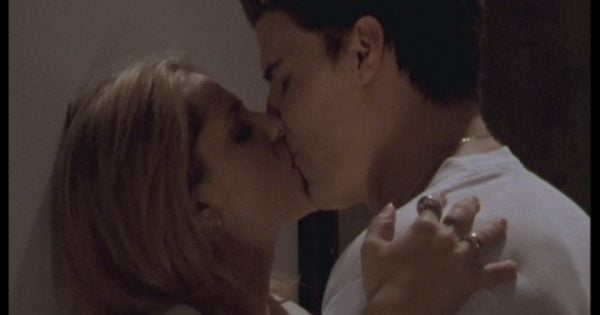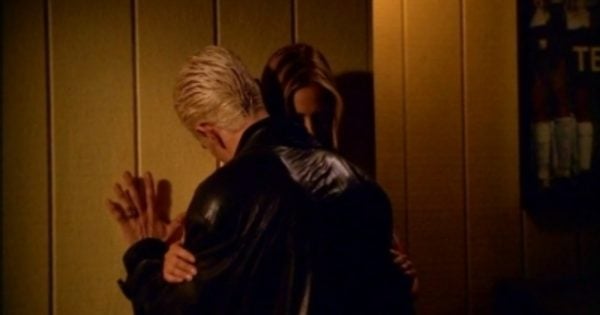There were many things Buffy: The Vampire Slayer gave me: sleepless nights, a fear of graveyards and a comprehensive sexual education.
Fans of the series will remember that good ol’ Buff went through the motions most of us experienced in our mid-to-late teens. Dating. Kissing. Jealousy. Sex.
The build up to the slayer’s “first time” was a slow burn, allowing her character to act out many of the thoughts, feelings and fears shared by girls everywhere.
Listen to our special Buffy bonus episode here
Buffy questioned what it would feel like, whether it would hurt, what her parents would say, what her friends would say and whether it would change her relationship.



